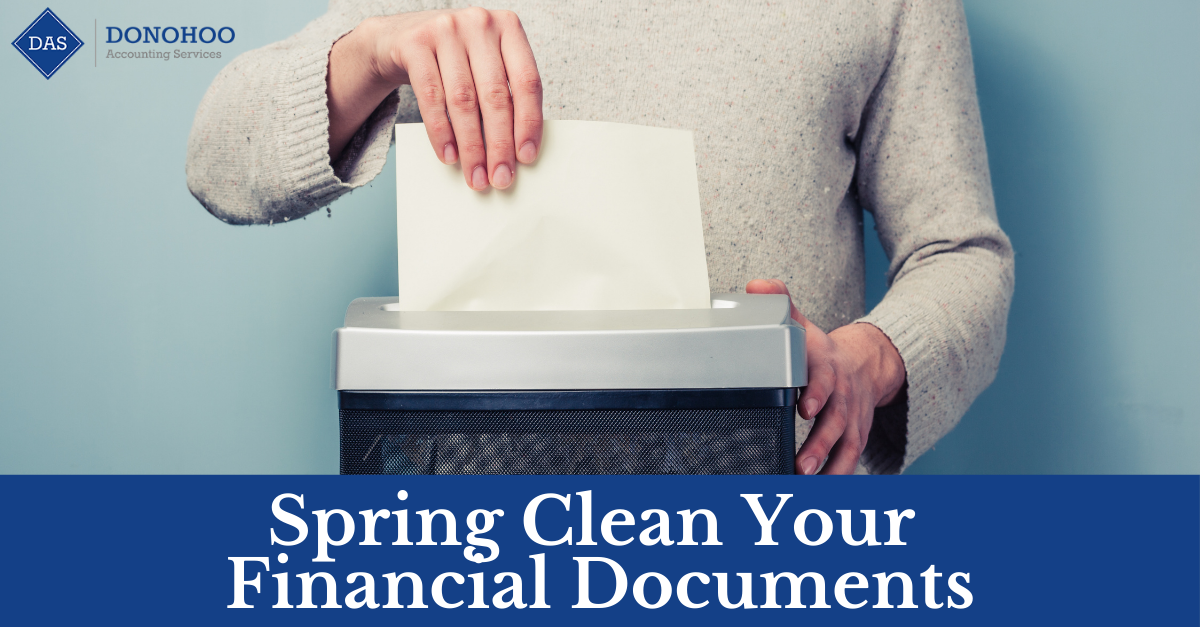Spring Clean Your Financial Documents
With tax season upon us and the hint of Spring around the corner, now is the perfect time to focus your spring-cleaning efforts on your financial documents and be ready for the year ahead. Here’s what we recommend you do:
Have A System
Store all of your important papers all in one place. A traditional filing cabinet works great, with separate folders allocated for your utility bills, pay stubs, bank statements, credit card statements and investment information.
Keep similar statements together so you can find what you need quickly. Safely store your important documents in a fireproof and water-resistant container.
To Keep Or Not To Keep
You don’t have to keep everything forever. Here are some rules of thumb to guide you.
-
-
-
-
- Utility bills. Keep these for about a year in case there is a billing question that comes up.
- Pay stubs. Hang on to these for a year, too, or until you can cross reference it to your year-end W-2 statement.
- Bank statements. Keep these for one year unless you plan to apply for a car or home loan, then keep two years of statements. Lenders typically ask for two years’ worth of statements, and many banks give you free access only to the past six months.
- Credit card statements. You can typically pitch credit card statements that are older than a year unless you’ve used them to pay for home office or home improvement expenses. If they impact your taxes, keep those statements until you sell your home.
- Investments. You can throw out the monthly or quarterly statements if you have the yearly statements, but hold on to statements that show trading confirmations.
- Tax records. Keep all of your tax returns and the supporting documents for at least three years. The IRS can challenge returns for the previous six years if they suspect you haven’t reported income, so you may want to play it safe and hang on to them for six years, especially if you are self-employed. Returns that are decades old and several residences in the past will likely not be needed.
- Other important documents. There are some documents you will keep forever—birth certificates, marriage licenses, estate planning, death certificates, etc. These documents should be kept in a place that protects them from flood, fires and theft.
-
-
-
Shred
When you have identified what you no longer need to keep and store, don’t just throw them in the trash. Shred them. This will protect you from identity theft, an all too common and devastating problem that results when dumpster divers go through your trash in search of personal information. Then they use it to make purchases or apply for new credit cards.
Donohoo Accounting Services is here to help you with your financial paperwork, tax preparation and business and personal tax returns. If you have questions about which financial documents you should keep, which you should get rid of, or if you need help with your taxes, give us a call at 513-528-3982. We would be happy to assist. For more tips and our latest updates, check us out on Facebook, Twitter or LinkedIn!









